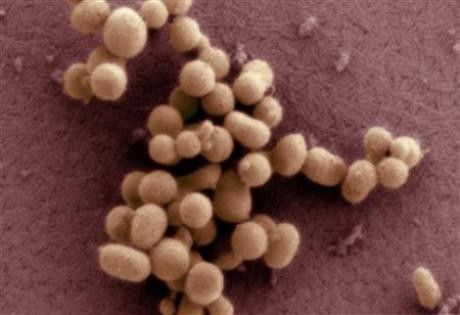Synthetic Biology Needs Prudent Vigilance To Prevent Risk, US Panel Says

The Presidential Commission for the Study of Bioethical Issues has called for enhanced federal oversight in the emerging field of synthetic biology, which involves the design and construction of laboratory-made biological parts.
The panel, comprised of scientists, ethicists and public policy experts, said the very newness of this burgeoning field of science gives regulators, ethicists and others time to identify any problems early on and craft solutions that could harness the technology for the public good.
Synthetic biology offers extraordinary promise to create new products for clean energy, pollution control, and medicine, to revolutionize chemical production and manufacturing, and to create new economic opportunities, the panel said. Synthetic biology is capable of significant but limited achievements posing limited risks, it said.
Synthetic biology is the name given to an emerging field of research that combines elements of biology, engineering, genetics, chemistry, and computer science. Achievements in synthetic biology rely on artificially created DNA to create new biochemical systems or organisms with novel or enhanced characteristics.
In May, researchers from the J. Craig Venter Institute (JCVI), a not-for-profit, genomic-focused basic research organization, reported the successful construction of a first self-replicating, synthetic bacterial cell. They copied and modified an entire genome of a small bacterial cell, inserted it into a living cell of another species, and by doing so created a new, synthetic organism.
President Obama asked the commission to study the implications of synthetic biology after proponents and critics made striking claims about potential risks and benefits of this discovery and whether it amounted to an early-stage example of “creating life.”
The bioethics commission said several experts explored potential benefits of synthetic biology, including the development of new vaccines, drugs and biofuels.
We considered an array of approaches to regulation - from allowing unfettered freedom with minimal oversight and another to prohibiting experiments until they can be ruled completely safe beyond a reasonable doubt, said Amy Gutmann, the commission chairwoman and president of the University of Pennsylvania. We chose a middle course to maximize public benefits while also safeguarding against risks.
In its report, the panel identified risks and benefits of the pioneering research that could lead to new vaccines, drugs and biofuels and develops framework to evaluate emerging technologies.
Citing uncertainty about risks, the panel urged enhanced coordination and transparency,ongoing risk analysis, public engagement, and stepped up ethics education for the researchers.
The panel recommended that the government, through a coordinated process or body within the Executive Office of the President, lead an ongoing review of developments, risks, opportunities, and oversight as this field grows.
The commission's approach recognizes the great potential of synthetic biology, including life saving medicines, and the still distant risks posed by the field, Gutmann said. Prudent vigilance suggests that federal oversight is needed and can be exercised in a way that is consistent with scientific progress.
According to the commission, clean energy sources, customized vaccines and targeted medicines, environmental cleansers, and hardy crops are some of the potential applications of synthetic biology. While most of the fruits of synthetic biology remain in early stages of development, some applications are expected to come to market within a few years.
We believe that the commission’s report is comprehensive and that their recommendations are wise, warranted and restrained which will help to ensure that this young field of research will flourish in a positive manner, said Craig Venter of JCVI.
This area of science will lead to new techniques and tools for advanced vaccine and pharmaceutical development, and will continue to enable the development of new biofuels and biochemicals. As well these technologies could be used to create clean water, new sources of food, textiles, according to JCVI.
Venter and privately-held Synthetic Genomics Inc. (SGI) believe that this science has the potential to be a major wealth driver for societies. Venter-headed SGI has exclusive assignment of intellectual property rights on this work and has filed around 13 patent application families to date.
A recent report from the Royal Academy of Engineering in the UK said, Synthetic biology has the potential to create another raft of major new industries, the development of which is likely to have profound implications for the future of the UK, European and world economies.
© Copyright IBTimes 2024. All rights reserved.





















